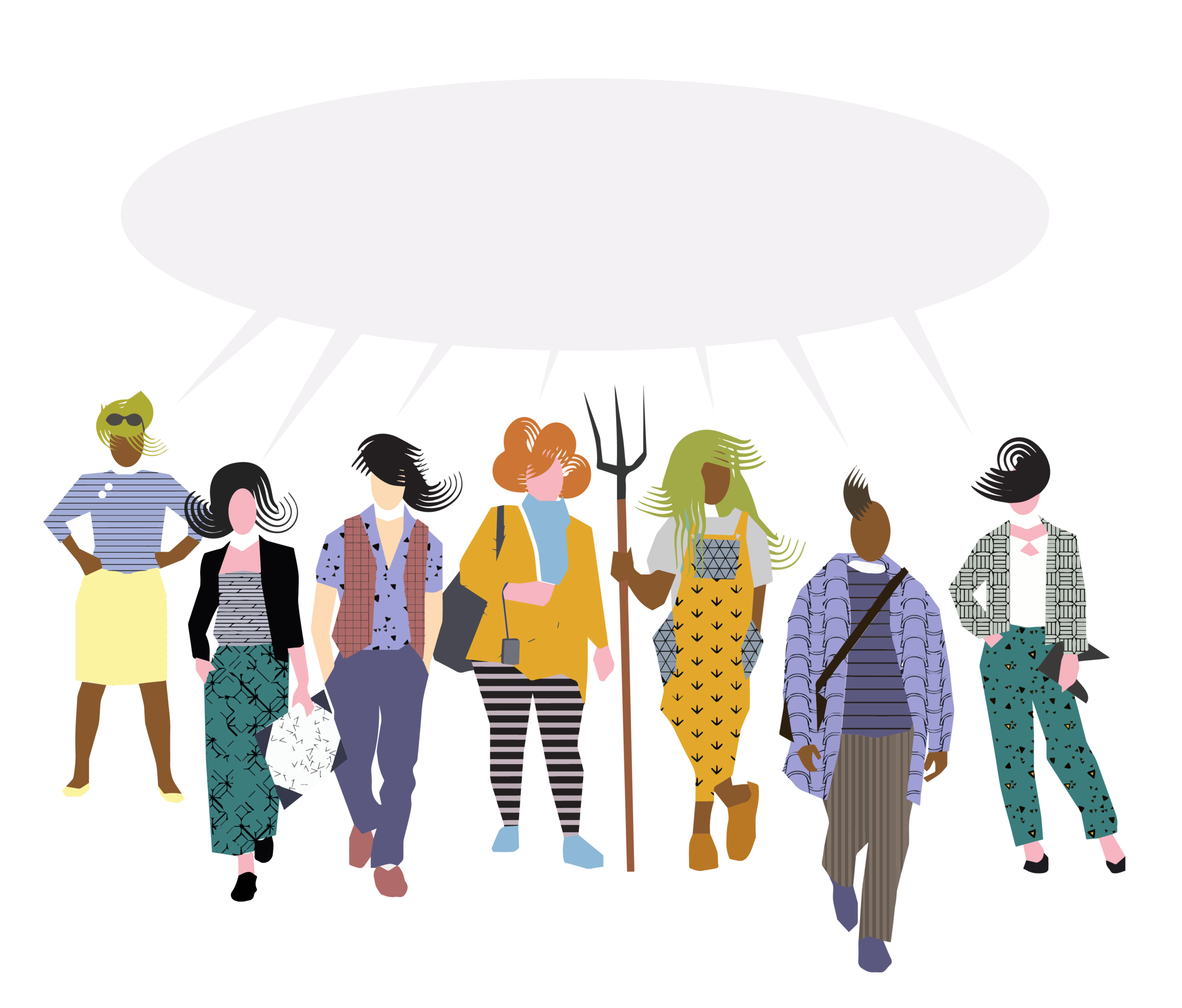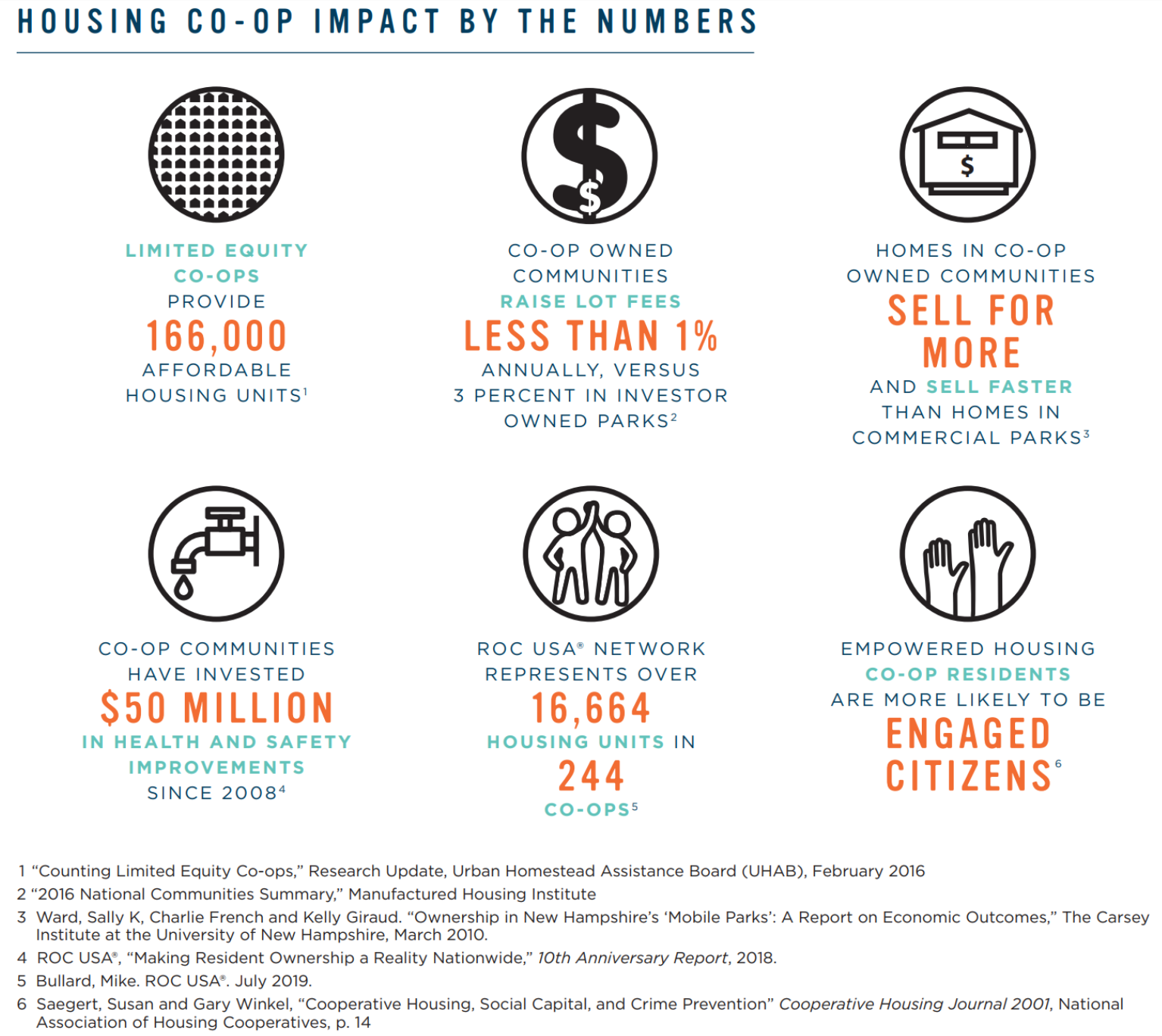Cooperative Ownership (of All The Things)
What is Cooperative Ownership?
“Cooperatives are jointly owned, democratically controlled enterprises that advance the economic, social, and cultural interests of their members. They often emerge during moments of crisis not unlike our own, putting people in charge of the workplaces, credit unions, grocery stores, healthcare, and utilities they depend on. Co-ops have helped to set the rules, and raise the bar, for the wider society.”
-- Nathan Schneider, Everything for Everyone : the Radical Tradition that Is Shaping the Next Economy, 2018
Cooperative ownership is a concept which involves sharing ownership and combining capital with an emphasis on democratic governance, all with the goal of having a positive impact on the cooperative's members/owners. With the rise of cooperative housing and worker coops it's time everyone learns what cooperative ownership entails and what exactly about it is so intriguing. The International Cooperative Alliance states that “Cooperatives are people-centered enterprises owned, controlled and run by and for their members to realize their common economic, social, and cultural needs and aspirations. Cooperatives bring people together in a democratic and equal way. Whether the members are the customers, employees, users or residents, cooperatives are democratically managed by the 'one member, one vote' rule. Members share equal voting rights regardless of the amount of capital they put into the enterprise.”
Today's modern cooperative originated in Great Britain in 1844, and with it a set of basic principles that are internationally accepted by all cooperatives.
Voluntary and Open Membership
Democratic Member Control
Member Economic Participation
Autonomy and Independence
Education, Training, and Information
Cooperation among Cooperatives
Concern for Community
Cooperatives are based on the values of self-help, self-responsibility, democracy, equality, equity, and solidarity. In the tradition of their founders, cooperative members believe in the ethical values of honesty, openness, social responsibility and caring for others. CoEverything likes to apply these values in the work that we do across many industries and sectors, we like to refer to this space as the “CoEconomy”.
What Can be Cooperatively Owned?
Cooperative ownership can be found in many facets and within different kinds of entities. As we mentioned earlier, some of the most well known types of cooperative ownership include consumer coops (think credit unions, R.E.I. or your local food coop) and housing coops. In addition to these there are worker-owner (small businesses), investment, purchasing/processing (popular in for small farms or utilities), and multi stakeholder coops along with the newly emerging hybrid and platform coops. Each is built upon the same shared views and principles from 1844. The National Cooperative Business Association cites nearly 65,000 cooperatively-owned businesses in the USA alone (excluding housing cooperatives) - cooperative ownership is more prevalent than we think.
Worker Coop
A worker coop is a business that is cooperatively owned and managed by its workers. Worker-owners make the initial investment in the form of a member share - this capital investment becomes their equity in the business. These are typically values driven businesses that put worker and local community benefit at the core of its purpose. These can be perfect for people with lower incomes, splitting the startup cost with a group of others makes the creation of a new company affordable to more people. Worker co-ops are made up of a number of members, each one has an equal voice in how the company is actually run. Although the initial investment could potentially be risky for some, worker-coops often have better benefits for their workers and employees and lower turnover.
Housing Coop
Housing cooperatives are made up of shareholders of a corporation - the corporation owns the real estate (the land and the buildings). Shareholders own shares of the corporation, and have shared decision making power. These can be single houses or full complexes, or high rise buildings - housing coops are very common in NYC. The housing coops can often be less expensive than rental apartments because they operate at cost - money is collected from the residents to pay for expenses, no extra profit is made by a management company or landlord. Some small housing coops reduce costs even further by maintaining their own buildings and sharing duties for landscaping, etc. Shares can be sold on the open market (Market Rate Coops) or the coop may restrict the resale value of shares (Limited Equity Coop). Housing Coops may have an elected board for governance and decision making, they may set rules for programming and use of shared spaces, and may cater to certain groups such as seniors.
Investment Coops
An investment co-op includes a group of people who get together with the intent to pool their money for an investment - the first one launched in Minnesota, in part due to the state’s liberal securities exemption. In the summer of 2018, CoEverything CoFounders Miriam Gee and Declan Keefe met with Loren Schriber, a founder Board member of Northeast Investment Cooperative (NEIC) in Minneapolis, who told us the story of how he and other community members formed the coop to buy real estate on an abandoned commercial corridor in their neighborhood - the buildings have been renovated, and they are now home to a cooperatively-owned brewery and a local bakery.
Consumer Coop
Consumer coops are owned and democratically governed by their members who are also consumers. Consumers create a co-op of what they want to be purchasing - for example, REI consumer coop members want to purchase sporting equipment and outdoor gear. Memberships of these entities are fully open to anyone. The product sold at a specific market price is avaibe to both members and non members alike, the only difference is members receive benefits when there are surplus returns and sometimes specific discounts, or extra services. Other examples of consumer coops include: preschools which entail parents coming together to provide care for their children, utility cooperatives who come together to provide electricity, natural gas or telephone services, even credit unions that provide financial services and are controlled by its members. These groups all share a few things in common - they usually are not for profit enterprises and consist of people who live or work in similar areas who hold similar values, perhaps the value of organic food, or the value of arts in schools.
The first consumer coop was the Rochdale Society of Equitable Pioneers in 1844 - founders of the modern cooperative movement, impoverished in the wake of the Industrial Revolution, the tradesmen decided to pool their money together to open their own store selling staples they could not otherwise afford - “butter, sugar, flour, oatmeal and a few candles. Within three months, they expanded their selection to include tea and tobacco, and they were soon known for providing high quality, unadulterated goods.”
Purchasing Coop
A purchasing coop (a.k.a. “Retailers Coop”) is another type of consumer coop. A purchasing coop is a group of businesses that gather together so they can obtain economies of scale. Combining buying power to acquire large scale things needed for each individual company. The members in purchasing coops are independent businesses, not individuals. A familiar example is Ace Hardware or TrueValue - individually owned hardware stores are able to compete with big box home improvement retailers because they can collectively purchase goods at a lower cost. Bulk purchasing can advance the establishment and efficiency of smallest companies. Ace Hardware is the largest Purchasing Coop in the US that is not a food or grocery related. Purchasing Coops like Rural Electric Coops (RECs) that power 56% of our nation’s landmass and Solar Purchasing Coops like Amicus Solar have the potential to introduce more cost competitive renewable energy to our grid. The purchasing coop could help us gain leverage against Big Oil and help us reverse the effects of climate change.
Multi-Stakeholder Coop
Multi-stakeholder coops (a.k.a. social coops or solidarity coops) create specific roles and rights for each member, often combining different types of members. Although on first glance having a variety of member types may seem like it would cause opposing views, in fact it is their shared interest which tie them together. Another grassroots example of a multi-stakeholder investment coop is the newly launched East Bay Permanent Real Estate Cooperative (EB PREC) - “...a democratic, People of Color led cooperative that takes land and housing off the speculative market to create permanently affordable, community controlled land and housing. We are turning a racist, classist housing market into a tool that can build wealth for the groups most disenfranchised by it.” EB PREC is made up of four categories of stakeholders: Community Owners, Investor Owners, Resident Owners and Staff Owners. For those who qualify as Investor Owners:
Local residents invest $1000 each in a collective fund.
EB PREC uses that money to buy properties in Oakland and the East Bay.
The people who already live there get to stay and build equity. EB PREC trains them on how to manage it cooperatively, without any landlords.
Residents, investors, community members, and EB PREC staff then co-own and co-steward the property.
How Does CoEverything Integrate these Models?
CoEverything draws from the housing, investment and worker cooperative models aiming to eventually partner with consumer coops. CoEverything believes in the power of cooperatively owned housing. As we develop our own projects and work in joint partnership, we invest in cooperatively owned real estate. Finally, CoEverything itself is a worker-owned cooperative. According to CoFounder Declan Keefe, the way a cooperative can truly be effective is “moving at the speed of trust” meaning working openly and honestly with the community and other members in the cooperative and embodying the Rochdale Principles like coops cooperating and working together. Moving at the speed of trust ensures that everyone is on the same page, which is one of key components to a successful cooperative.
Cooperative ownership and cooperative models are on the rise. People seem to be ready for a change in their routine investments, housing, employment and life. Cooperatives offer everyone an equal vote, they promise a voice to each member and they highlight collaboration and communication among members. Cooperative ownership provides a way to flourish and thrive - especially in the face of market downturns like the great recession. Historically, when the economy was down, people came together and turned toward cooperative ownership and solidarity for all their basic needs: housing, electricity, food and supplies. As the “silver tsunami” of baby boomers continue to retire, many are choosing to convert their companies to worker-coops and sell to their employees rather than large conglomerates. Let’s invest in local ownership and community wealth building and support cooperative ownership - Jeff Bezos owns enough market share these days.


